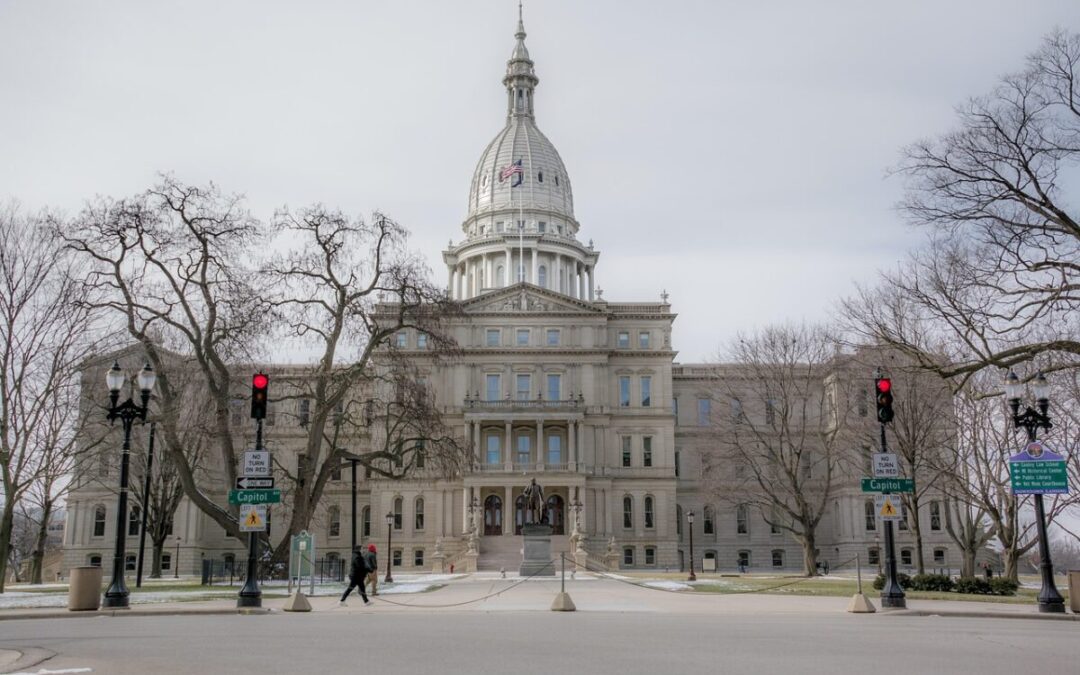
Lake Huron at sunset (Photo via Susan J. Demas)
BY JON KING, MICHIGAN ADVANCE
For those grumbling about losing an hour of sleep on Sunday, new legislation could put Michigan on a path to do away with the practice of moving clocks ahead an hour in the spring and then back an hour in the fall.
Sen. Thomas Albert (R-Lowell) last week introduced Senate Bill 770, which seeks to place on the November ballot the question of whether or not to continue observing daylight saving time.
“It has been more than 100 years since our nation first experimented with daylight saving time, and we find ourselves still asking the same question: Why do we do this?” asked Albert. “I, for one, cannot find a valid reason. It seems to me that changing our clocks twice a year is a poor and unnecessary policy. But I know opinions differ, and daylight saving time affects every Michigander in some way. That is why I propose putting this to a vote of the people.”
Daylight saving time this year began on Sunday and runs until early November. First implemented in the U.S. as an energy saving measure during World War I, and then again in World War II, most states abandoned the practice when peacetime resumed. In 1966, however, the Uniform Time Act set it into federal law, although states retained the ability to opt out.
Michigan voters did just that, initially rejecting daylight saving time in 1968, before agreeing to its establishment in 1972.
Currently, only two states, Arizona and Hawaii, do not recognize daylight saving time. Five U.S. territories also remain on standard time throughout the year; American Samoa, Guan, Northern Mariana Islands, Puerto Rico, and the U.S. Virgin Islands.
However, as USA Today recently reported, each of those locales have climates that aren’t necessarily conducive to an extra hour of daylight during the hottest part of the year or are located at latitudes on which there is little variation in sunset and sunrise throughout the year.
Albert said the effectiveness of daylight saving time in reducing energy usage is inconclusive at best, and the springtime change also raises potential health and safety concerns.
“After 52 years, it is time to let voters weigh in on this issue once again,” he said.
After being introduced on Thursday, Albert’s bill was assigned to the Government Operations Committee, which has become a repository through the years for legislation unlikely to be enacted.
This coverage was republished from Michigan Advance pursuant to a Creative Commons license.

Be it resolved? From ceremonial to political, a look at Michigan lawmakers’ resolutions
By Eric Freedman, Capital News Service LANSING—From a proposed cigar bar at Detroit Metropolitan Airport to the ill-fated S.S. Edmund Fitzgerald,...

Federal judge orders Trump administration to fully fund SNAP benefits in November
A federal judge in Rhode Island ordered the Trump administration Thursday to find the money to fully fund SNAP benefits for November. The ruling by...

Why health insurance is so expensive this year — and what you can do about it.
Michelle Andrews November 4, 2025 This year’s Obamacare open enrollment period, which started Nov. 1 in most states, is full of uncertainty and...

So your insurance dropped your doctor. Now what?
Bram Sable-Smith and Oona Zenda Illustrations by Oona Zenda October 29, 2025 Last winter, Amber Wingler started getting a series of increasingly...

What 1.4M Michigan residents should know about looming November pause in SNAP benefits
About 1.4 million Michiganders could see their food assistance benefits cut off in November if the federal government shutdown continues. The U.S....




